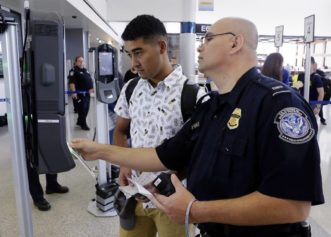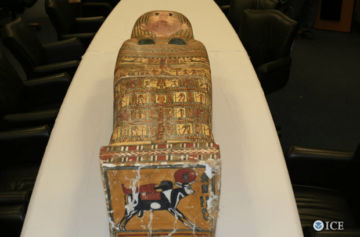A Texas woman’s dreams of opening a medical clinic in her native Nigeria were shattered last year after U.S. Border and Protection agents seized nearly $41,000 from her.
In October, 59-year-old nurse Anthonia Nwaorie was boarding a plane at George Bush Intercontinental Airport in Houston carrying a bag of supplies, medical equipment and about $41,000 in cash, The Texas Tribune reported. Moments later, she was stopped by CBP officials.
“The officer started asking me questions: How much money do you have? How long have you been in the United States?” Nwaorie recalled. “I felt like a criminal that had just run the red light.”
The nurse said she was detained for hours and wound up missing her flight to Nigeria. She said customs officials had also seized all her money, which she spent years saving up.
It’s been almost six months since the incident and Nwaorie still has not been charged with a crime, according to the newspaper. Federal prosecutors didn’t bother with trying to seize her property through the courts either. Yet still, CBP has refused to return Nwaorie’s money unless she agrees to sign what is called a “hold harmless” agreement, promising not to sue the agency for seizing her cash through the practice of civil asset forfeiture, which basically allows the government to take property they suspect is tied to a crime.
As part of the deal, Nwaorie would also be forced to reimburse the feds for expenses incurred while enforcing the agreement but the seasoned nurse has refused to sign away her rights.
“The government took my money for no good reason and kept me from building a medical clinic that can provide healthcare to vulnerable women and children,” she said in a statement.
So why was her money taken in the first place? The Nigerian-native, who has been a U.S. citizen since 1994, failed to notify officials that she was taking more than $10,000 out of the country. It’s a technical requirement her attorneys said isn’t well publicized or easy to adhere to, the Tribune reported.
Nwoarie is fighting back, however. On Thursday, the Virginia-based Institute for Justice filed a class-action lawsuit on her behalf, demanding that CBP return her cash without requiring her to sign the hold harmless agreement. The complaint also asks the courts to dismiss all such agreements signed by others hoping to get their seized property back.
“We’re representing hundreds or thousands of people all over the country who have had this sort of thing happen to them,” Dan Alban, one of the attorneys trying the case, told the Tribune. “They were entitled to get their property back … and instead, CBP sent them this letter demanding that they waive all rights to sue and hold [the government] harmless, and if they violate the agreement, pay all the attorney’s fees. And that’s just egregious.”
A spokesman with Customs and Border Protection declined to comment on the case, citing pending litigation.
Critics have long decried the government’s practice of civil forfeiture, arguing it lines the pockets of police and attorney agencies at the expense of citizens’ basic constitutional rights. A University of Central Florida student was lucky enough to get his property back in 2016 after the feds seized $11,000 in his life savings at the airport after falsely accusing him of having marijuana.
As for Nwoarie, her dreams of opening a medical clinic remain on hold.
“This is a horrible nightmare which I would not wish on anybody at all,” she said. “This is the money that I have worked hard to earn. I have the right to do whatever I please with it.”

